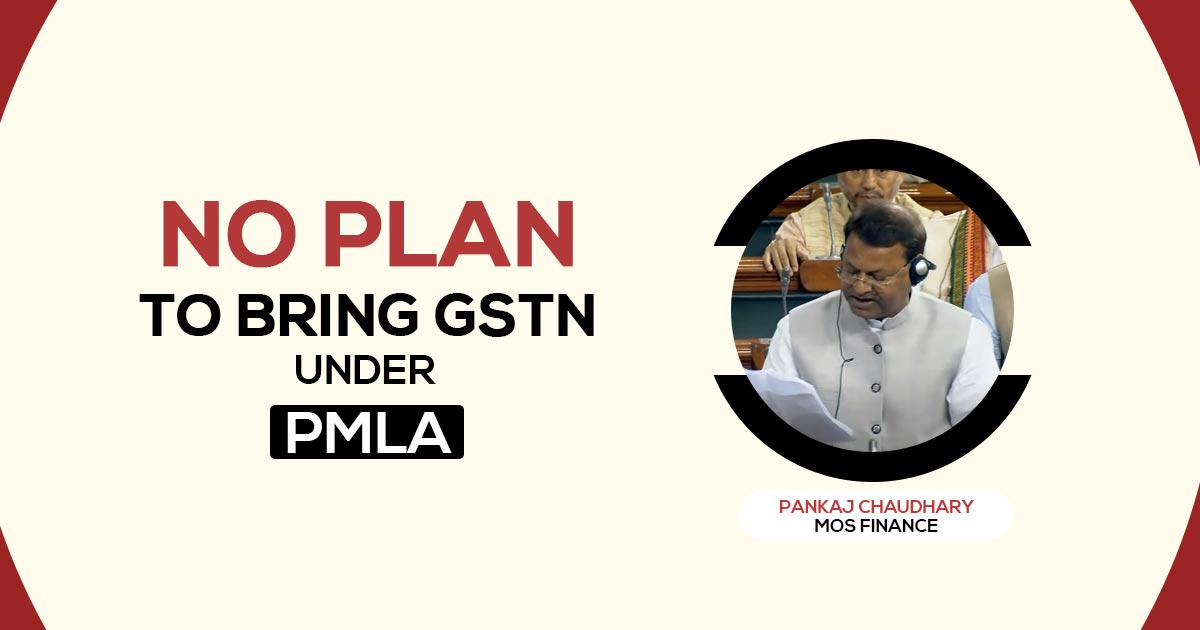
The Minister of State in the Ministry of Finance India, Shri Pankaj Chaudhary replying to a question raised in Lok Sabha said that, no proposal to bring GSTN under PMLA.
The main purpose and objectives of GSTN are to furnish common and shared IT infrastructure and services to the Central and State Governments, Taxpayers, and other stakeholders to apply the GST.
Whereas the Prevention of Money Laundering Act (PMLA) prevents money laundering and deals with the matters related to it.
To include the GSTN under the scope of PMLA, there is no proposal in consideration. However, recently a notification has been released by the government under Section 66 of PMLA bearing instructions for the Director of Financial Intelligence Unit-India to send various reports such as cash transaction reports, suspicious transaction reports, etc. to GSTN for letting GST authorities handle it, where these reports may identify relevant for GST evasion.
Prevention of Money Laundering Act, 2002 (PMLA)
Prevention of Money Laundering Act, 2002 (PMLA) was enacted to stop various fraud practices such as income generated from illegal sources but registered as a legal entity. The act authorizes the government or the public authority to seize the property acquired from illegal practices. To make it simple, all the activities are dealt with under this act where illegally earned money is converted into legitimate money.
What Exactly Is Money Laundering?
Read also: GST Identification Number (GSTIN) and Its Applicability
Some people betray the government by finding loopholes in the law. Money laundering is also done in a similar way where a person earns black/illegal money from illegal activities but shows his earning as legal money under a legitimate activity. The money generated from illegal sources is then passed on through different channels or phases of conversions and converted into legal money. In the end, it turns out to be a legally acceptable institution such as banks.









